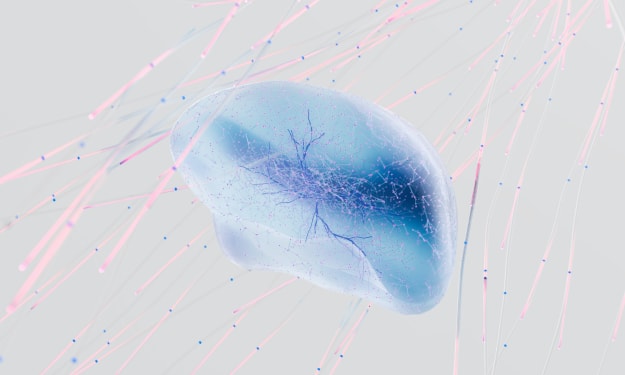
Storytelling has a magical ability to transport us to distant lands, introduce us to intriguing characters, and keep us eagerly turning the pages. But what is it that makes a story truly captivating? The answer may lie in one powerful word: curiosity. It's the spark that ignites our imagination, keeps us engaged, and activates the brain's reward center, making it an irresistible storytelling tool.
Curiosity: The Brain's Reward Center
To understand the connection between curiosity and storytelling, let's first delve into the science behind it. Curiosity is not merely a fleeting feeling; it's deeply rooted in our brain's reward system. When we encounter something that piques our interest, our brains release a cocktail of neurotransmitters, including dopamine, which is often referred to as the "feel-good" neurotransmitter.
Dopamine is associated with pleasure and reward, and it plays a pivotal role in motivating us to seek out and explore novel information. This release of dopamine in response to curiosity creates a positive feedback loop in our brains, encouraging us to keep exploring, learning, and seeking out new experiences.
Curiosity Keeps Us Engaged
Now, let's apply this neuroscience to storytelling. When a story introduces elements that trigger curiosity—mysteries, unanswered questions, or enigmatic characters—it captivates our attention. Our brains are wired to crave closure and resolution, and storytelling offers the promise of answers.
Consider a gripping mystery novel. The opening scene presents a perplexing situation: a murder, a missing object, or a cryptic message. Our curiosity is piqued, and we become emotionally invested in uncovering the truth. As we progress through the story, each revelation satisfies our curiosity, triggering that delightful dopamine release and keeping us engaged.
Curiosity Drives the Plot
Curiosity isn't just a passive element of storytelling; it can be the driving force behind a narrative. Think about adventure stories where the protagonist embarks on a quest to uncover a hidden treasure, solve a riddle, or decode a cryptic map. The character's curiosity mirrors our own, and we join them on a thrilling journey fueled by the promise of discovery.
In tales of exploration, whether it's traversing uncharted territories or delving into the depths of the human psyche, curiosity becomes the driving engine of the narrative. It compels characters—and readers—to venture into the unknown, confront challenges, and ultimately find answers or insights that satisfy their deepest inquiries.
Curiosity and Character Development
Curiosity isn't limited to plot-driven narratives; it's a potent tool for character development. Complex characters are often defined by their insatiable curiosity about the world, their past, or their own motivations. This curiosity makes them relatable and endearing to readers.
Consider a character who embarks on a personal journey of self-discovery. Their relentless curiosity about their own identity, motivations, and past mistakes drives the story forward. As readers, we become emotionally invested in their quest for answers, cheering them on as they confront their own demons and uncover hidden truths.
Curiosity as a Theme
In some stories, curiosity itself becomes a central theme, exploring the consequences of seeking knowledge or pushing boundaries. These narratives often delve into the ethical, moral, and philosophical aspects of curiosity, forcing readers to contemplate the price of unquenchable inquisitiveness.
Think of Mary Shelley's "Frankenstein," where the character of Dr. Victor Frankenstein's insatiable curiosity leads to unintended and disastrous consequences. The novel challenges us to consider the ethical implications of pushing the boundaries of knowledge and curiosity without restraint.
The Art of Pacing
Curiosity doesn't just keep us engaged throughout a story; it also influences the pacing of the narrative. Skillful storytellers know how to strategically introduce and sustain curiosity to maintain the reader's interest.
The art of pacing involves balancing the release of information and revelations. Too much information too soon can quench curiosity prematurely, while withholding too much can lead to frustration. Successful storytellers create a delicate dance between satisfying curiosity and sparking new questions, ensuring a steady flow of dopamine-induced rewards for the reader.
Curiosity in Non-Fiction and Education
While we often associate curiosity with fiction, it is equally valuable in non-fiction and educational contexts. Consider popular science books or documentaries that pose intriguing questions or mysteries about the natural world. By nurturing curiosity, they engage readers and viewers, inspiring them to delve deeper into complex subjects.
In education, curiosity-driven learning is gaining recognition as an effective pedagogical approach. Encouraging students to ask questions, explore topics that genuinely interest them, and pursue answers through inquiry-based learning taps into the power of curiosity. It transforms the educational experience from a passive absorption of facts into an active, engaging journey of discovery.
Fostering Curiosity
As readers and learners, we can actively foster and channel our curiosity. Keep a journal of questions that arise during your reading or daily life. Seek out answers through research, exploration, or discussions. Join book clubs or discussion groups where you can explore intriguing topics with others who share your curiosity.
In storytelling, both as creators and consumers, we can harness the magnetic pull of curiosity. As writers, we can craft narratives that tantalize and reward our readers' inquisitiveness. As readers, we can embrace the thrill of the unknown, relishing the journey of discovery that every well-told story offers.
In Conclusion
Curiosity is the heartbeat of captivating stories. It activates the brain's reward center, releasing dopamine and propelling us on a quest for knowledge and resolution. Whether it's driving the plot, defining characters, or exploring complex themes, curiosity is the secret ingredient that keeps us engaged, eager to turn the next page, and





Comments
There are no comments for this story
Be the first to respond and start the conversation.